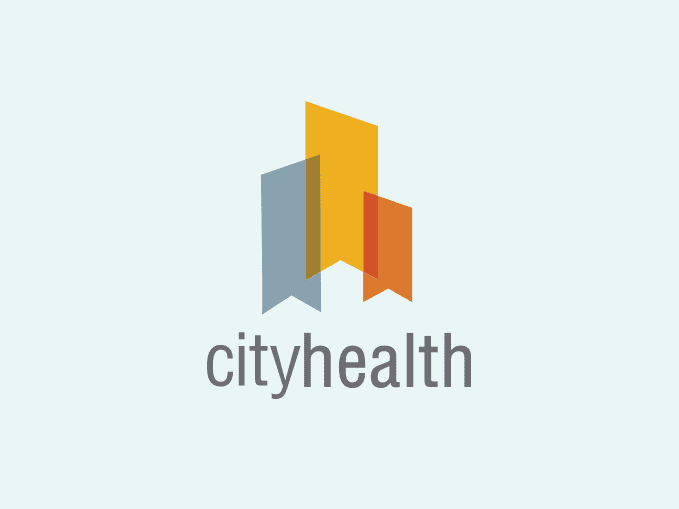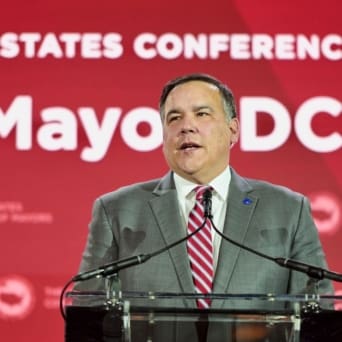WASHINGTON, D.C. — DECEMBER 8, 2020 — In a year that has seen more than its share of unprecedented challenges, America’s largest cities are proving their resilience by taking action and finding innovative solutions to protect the health and well-being of their communities. Today, CityHealth released its annual ratings of America’s 40 largest cities and announced the achievement of a significant milestone: 90% of cities earned an overall medal for advancing public health policies, an increase from 75% in 2019, and nearly double the number from CityHealth’s first assessment in 2017 (47.5%). Today, more than 43 million residents live in a city that has earned an overall CityHealth medal, compared with 29 million people in 2017 (an increase of 14.5 million people). Overall medal results are based on the combined strength and number of the policies that cities have in place.
“Across the country, city leaders have stood on the front lines of the COVID-19 pandemic, demonstrating strong leadership and working hard to help residents navigate extremely difficult times,” said CityHealth Co-Executive Director Katrina Forrest. “The milestone of 90% of cities earning an overall medal shows that local leaders are finding creative approaches to community health while addressing racial inequities and working to close persistent health disparities.”
Two cities — Atlanta and Louisville — earned special recognition with their first overall gold medals. Both cities received an overall gold medal for earning at least five gold medals in individual policy areas.
“America’s cities have shown incredible resilience in the face of the myriad of challenges that 2020 has delivered,” said CityHealth Co-Executive Director Catherine Patterson. “Resilient cities are responding to the moment by adopting policies like Complete Streets and high-quality, accessible pre-K. These policies are proven to strengthen communities for years to come and will help all residents live their healthiest possible lives.”
CityHealth also celebrated another milestone in the individual policies. For the first time in CityHealth’s history, all 40 cities earned a gold medal in a single category: Tobacco 21. This achievement was the result of locally driven innovation that ultimately became the law of the land. CityHealth’s first assessment in 2017 found that only 13 cities had Tobacco 21 policies, with more joining each year until the passage of federal legislation in December 2019.
CityHealth, an initiative of the de Beaumont Foundation and Kaiser Permanente, helps cities attain better outcomes for their residents by advancing a menu of proven policies that improve people’s day-to-day quality of life, well-being, and health. Each year, cities are awarded gold, silver, and bronze medals according to the strength and number of the policies they have in place. The data used in the assessment are produced by the Center for Public Health Law Research at Temple University’s Beasley School of Law.
Key Findings
Among the nation’s 40 largest cities, there are:
-
10 gold medal cities
-
12 silver medal cities
-
14 bronze medal cities
-
4 cities that did not earn a medal
Two cities earned an overall gold medal for the first time:
-
Atlanta earned an overall gold medal for achievements in high-quality, accessible pre-K, food safety, safer alcohol sales, smoke-free indoor air, and Tobacco 21.
-
Louisville earned an overall gold medal for achievements in high-quality, accessible pre-K, Complete Streets, food safety, smoke-free indoor air, and Tobacco 21.
11 additional cities improved their overall medal scores by earning a silver or bronze medal for the first time:
-
First-time silver medals: Albuquerque, Charlotte, Las Vegas, Milwaukee, and Philadelphia.
-
First-time bronze medals: Columbus, Jacksonville, Memphis, Mesa, Nashville, and Phoenix.
Cities earned 22 new individual medals in 2020, with gains in Tobacco 21, earned sick leave, high- quality pre-K, and Complete Streets.
Overall Results
Gold
-
Atlanta*
-
Boston
-
Chicago
-
Dallas
-
Los Angeles
-
Louisville*
-
New York
-
San Antonio
-
San Francisco
-
Seattle
Silver
-
Albuquerque*
-
Charlotte*
-
Denver
-
Kansas City
-
Las Vegas*
-
Long Beach
-
Milwaukee*
-
Philadelphia*
-
Sacramento
-
San Diego
-
San Jose
-
Washington, D.C.
Bronze
-
Austin
-
Baltimore
-
Columbus*
-
Detroit
-
Fort Worth
-
Fresno
-
Houston
-
Jacksonville*
-
Memphis*
-
Mesa*
-
Nashville*
-
Phoenix*
-
Portland
-
Tucson
* = overall medal advancement
See complete results, including individual medals by policy area, at www.cityhealth.org/reports.
###
CityHealth, an initiative of the de Beaumont Foundation and Kaiser Permanente, works to advance a package of proven policy solutions that will help millions of people live longer, better lives in vibrant, prosperous communities. CityHealth regularly evaluates cities on the number and strength of their policies. Find out more at www.cityhealth.org.
The de Beaumont Foundation advances policy, builds partnerships, and strengthens public health to create communities where people can achieve their best possible health. Learn more at www.debeaumont.org.
For 75 years, Kaiser Permanente has been committed to shaping the future of health and health care — and helping our members, patients, and communities experience more healthy years. We are recognized as one of America’s leading health care providers and not-for-profit health plans. Since July 21, 1945, Kaiser Permanente’s mission has been to provide high-quality, affordable health care services and to improve the health of our members and the communities we serve. We currently serve 12.4 million members in 8 states and the District of Columbia. Care for members and patients is focused on their total health and guided by their personal Permanente Medical Group physicians, specialists, and team of caregivers. Our expert and caring medical teams are empowered and supported by industry-leading technology advances and tools for health promotion, disease prevention, state-of-the-art care delivery, and world-class chronic disease management. Kaiser Permanente is dedicated to care innovations, clinical research, health education, and the support of community health. For more information, visit about.kp.org.




